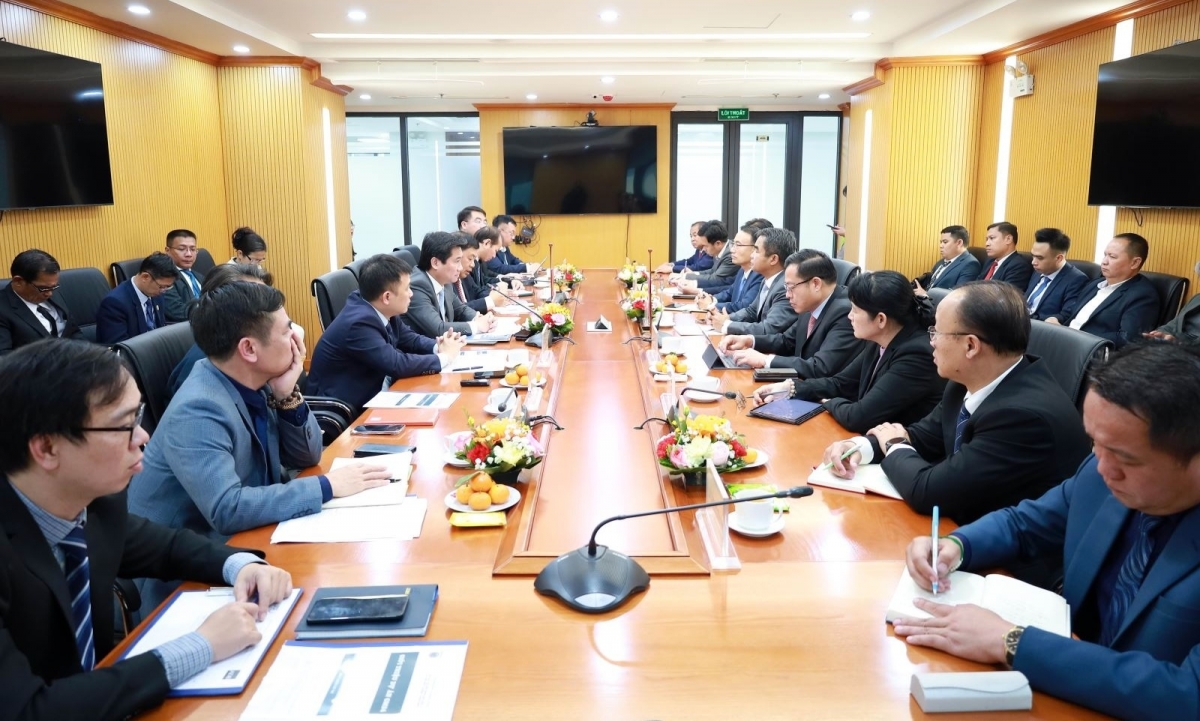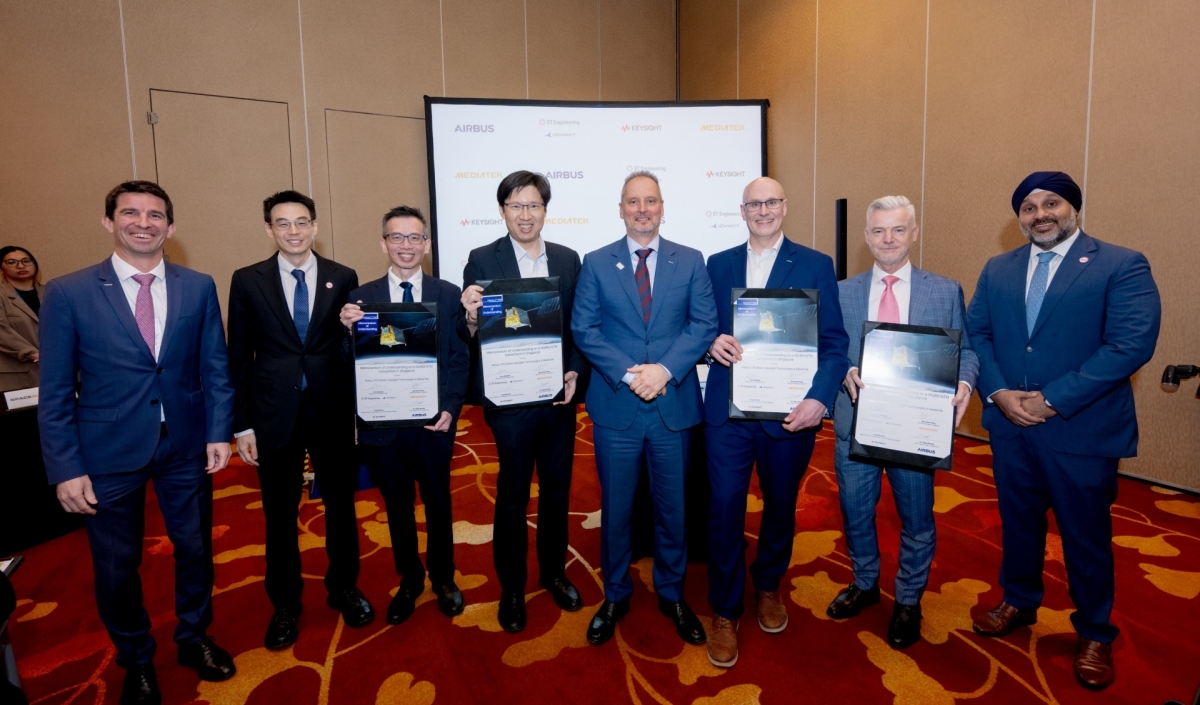INTERNATIONAL INVESTMENT
AND PORTAL
Vietnam marked 30 years of ASEAN membership with a high-level dialogue in Hanoi on July 31, bringing together policymakers, experts, and business leaders to reflect on the country’s regional integration journey and explore future paths for growth within the bloc. The event also celebrated ASEAN’s upcoming founding anniversary on August 8.
At the event, Lieutenant Colonel Nguyen Thanh Binh, head of the Southeast Asia, West Asia, and South Asia Division under the Ministry of Public Security’s Department of Foreign Affairs, spoke about Vietnam’s increasingly proactive and responsible role in ASEAN political-security cooperation.
"Despite constant fluctuations in regional and global landscapes, ASEAN has maintained its unity, solidarity, and central role in the evolving regional architecture. Throughout this process, Vietnam has been an active member and made significant contributions to promoting regional security cooperation, particularly in addressing non-traditional security challenges," said Binh.
Binh added that at the 46th ASEAN Summit in Malaysia this May, regional leaders endorsed the ASEAN Community Vision 2045 – a strategic blueprint to shape the region’s development over the next 20 years.
"This follows on from Vietnam’s initiative during its 2020 ASEAN Chairmanship and demonstrates the country’s proactive and constructive role in shaping a resilient, innovative, and people-centric ASEAN," said Binh. "It is an opportunity for Vietnam to continue advancing its previously proposed initiatives and contribute to building a dynamic and cohesive ASEAN Community, politically connected, economically integrated, and collectively responsible for peace and security in the region."
Assoc. Prof. Dr. Le Bo Linh, director of the Institute for Economic Strategy, offered a comprehensive perspective on Vietnam’s achievements in its integration policies and the strategic direction for the years ahead.
Linh noted that a steadfast commitment to an independent and self-reliant foreign policy, particularly in an environment shaped by diverse and competing interests, has been key.
"A foreign policy of diversification and multilateralism has enabled Vietnam to maintain balanced relationships with major powers while protecting national interests," he said. "By combining national strength with the power of the times, Vietnam has skilfully leveraged international integration opportunities to reinforce domestic capabilities, while also contributing to the resolution of regional and global challenges. These lessons are valuable in today’s context and form the foundation for sustainable development in the future."
"ASEAN remains an indispensable pillar of Vietnam’s foreign policy. Vietnam should continue to strengthen intra-bloc solidarity, prioritise emerging areas of cooperation such as the digital economy and sustainable development, and advance multilateral diplomacy to help build a rules-based regional order and encourage deeper economic integration in an increasingly volatile global landscape," Linh concluded.
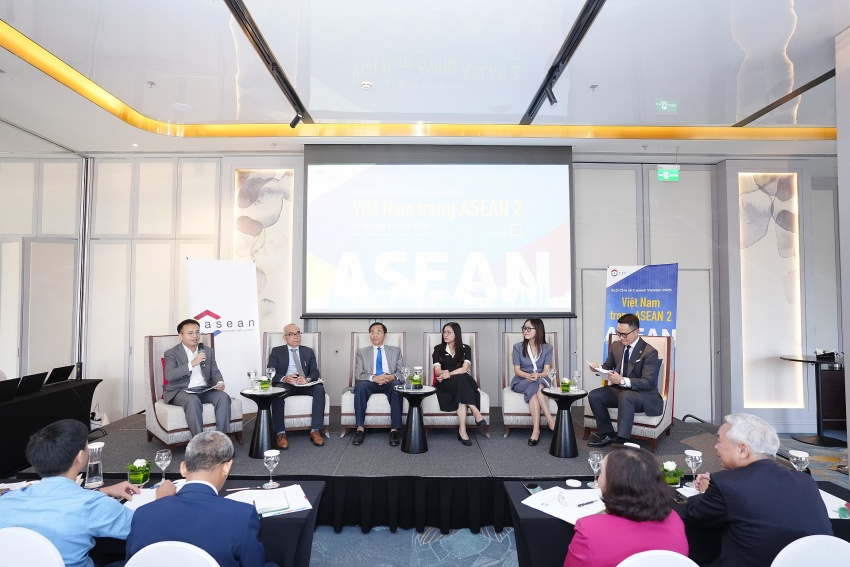 Speakers at the sharing session. Photo: C asean Vietnam
Speakers at the sharing session. Photo: C asean Vietnam
To Viet Chau, deputy director general of the International Cooperation Department under the Ministry of Agriculture and Rural Development, highlighted Vietnam’s remarkable transformation in agriculture over the past three decades of ASEAN membership. Once a food-insecure nation, Vietnam has become a leading exporter of rice, coffee, cashew nuts, tropical fruits, and seafood, each with annual export revenues exceeding $1 billion, while ensuring national food security.
"The harmonisation of standards, supply chain connectivity, and Vietnam’s participation in international commitments such as the Paris Agreement and the Just Energy Transition Partnership are creating valuable opportunities for the country to position itself as a producer of green, traceable agricultural products in line with global trends," said Chau.
However, he cautioned that Vietnam still faces considerable challenges, including climate change, resource degradation, and a widening technology gap within ASEAN. "These issues demand stronger cross-sectoral cooperation and a shared vision for the development of ecological, high-tech, low-emission agriculture that integrates multiple sustainable values," he added.
Tran Hai Van, deputy director general of the International Cooperation Department under the Ministry of Culture, Sports and Tourism, stated that Vietnam has been an active and responsible member of ASEAN, both effectively leveraging regional cooperation for national development and making substantive contributions to the ASEAN Community.
"Vietnam has demonstrated leadership by successfully chairing several key ASEAN cooperation mechanisms, such as the Senior Officials’ Meeting Responsible for Information, advancing joint declarations and initiatives, and serving as a trusted host for high-profile regional events," said Van.
Looking ahead, amid emerging challenges like limited resources and digital transformation, Vietnam has proposed strategic directions to deepen ASEAN cooperation. "Institutionally, we need to enhance policy coordination roles through Ministers’ Meetings and establish an ASEAN Cultural and Artistic Experts Network. In terms of resources, we should diversify funding channels, particularly by boosting collaboration with the private sector. As for content, priorities should focus on digital transformation, AI, cultural industries, and the development of creative cities," she added.
ASEAN currently stands as Vietnam’s third-largest trading partner globally, with over 98 per cent of intra-bloc tariffs eliminated, creating new advantages for Vietnamese goods to penetrate regional markets. In 2024, two-way trade between Vietnam and ASEAN reached nearly $84 billion, reaffirming the region’s strategic role in Vietnam’s exports and integration process.
To support businesses in accessing ASEAN markets, Le Thi Mai Anh, head of the Southeast Asia, South Asia and Regional Cooperation Division of the Department of Foreign Market Development under Ministry of Industry and Trade, noted that Vietnam has implemented a range of coordinated measures.
"These include improving the legal framework, effectively executing free trade agreements (FTAs) shared with ASEAN members, and negotiating supplemental bilateral deals such as the Vietnam-Laos Bilateral Trade Agreement, the Vietnam-Cambodia Trade Promotion Arrangement, an MoU on rice trade with the Philippines, Halal cooperation with Malaysia, and digital trade development with Indonesia," said Mai Anh.
Facing mounting technical barriers and heightened competition, Mai Anh emphasised the critical role of technology adoption and digital transformation in trade and logistics. She called for boosting digital trade within ASEAN, enhancing the capacity to implement FTAs, standardising product quality, and expanding flexible bilateral cooperation.
"These efforts will help position Vietnam as a dynamic trade hub within the ASEAN region," she added.
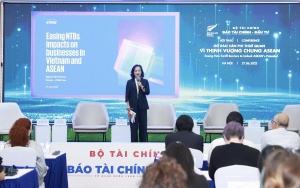 Removing hidden barriers to unlock ASEAN trade
Removing hidden barriers to unlock ASEAN trade
Non-tariff barriers in ASEAN, from hidden environmental rules to fragmented standards, are quietly stalling trade, demanding smarter, more unified responses from regional exporters.
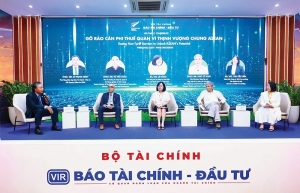 ASEAN considers strategies to soften non-tariff hurdles
ASEAN considers strategies to soften non-tariff hurdles
Streamlining non-tariff barriers to reduce the regulatory burden on businesses remains a key priority for ASEAN’s intra-trade, with Vietnam expanding exports to the region.
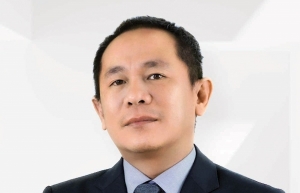 ASEAN needs regulator to tackle trade barriers head-on
ASEAN needs regulator to tackle trade barriers head-on
ASEAN is expected to unite and build common standards to support small businesses and strengthen regional trade resilience. Nhan Huynh, partner in Trade and Customs for KPMG in Vietnam, shared with VIR’s Hazy Tran that ASEAN’s true economic potential remains trapped behind a dense web of non-tariff barriers, demanding bold, enforceable reforms.






